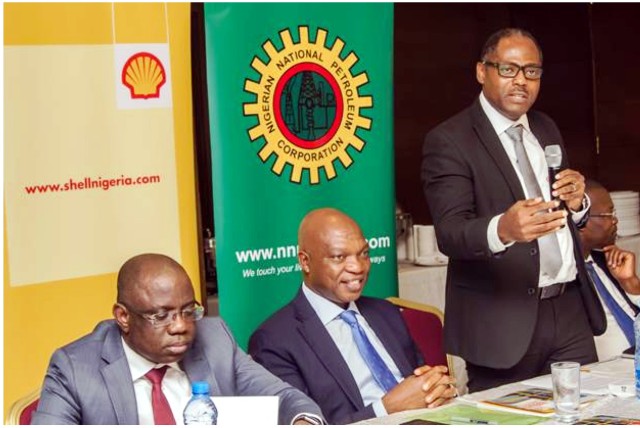Business
Steel Cutting Ceremony Excites Oil, Gas Stakeholders

Stakeholders in the Nigeria oil and gas industry, who witnessed the first Steel Cutting ceremony of the Ikike Development Project conducted in Port Harcourt have affirmed the initiative as one of the most striking advances made in the promotion of content development in the Nigeria oil and gas sector.
The Stakeholders, who expressed their views at the first Steel Cutting ceremony of the project held at Saipem office in Port Harcourt, said the project was quite promising as its has the capacity of creating employment opportunities and career development for Nigerians.
Speaking at the event, General Manager Facilities of the National Petroleum Investment Management Services (NAPIMS) Adeyemi Raimi, said, NAPIMS was greatly impressed about the “ seriousness and commitment “demonstrated by partners in the Ikike project, and urged them to remain focused in the delivery of the project.
Raimi who represented the General Manager, Joint Venture (JV) of NAPIMS assured the support of Federal agency towards the success of the project.
Also speaking at the event, the representative of the Department of Petroleum Resources, (DPR), Aminu Musa expressed deep satisfaction over the first Steel Cutting ceremony, stating that the event was: “ a bold step towards major achievements in Nigeria local content development. “
He commended the operators of the project, and urged a stronger interface with the DPR in the delivery of the project.
He pointed out that the DPR as a key regularity agency in the oil and gas industry was poised to ensure standards and compliances to best practices in the Nigeria oil and gas sector service delivery.
Other main contractors involved in the Ikike development project also applauded the projects as fundamental to the development of the oil and gas industry, and pledged to contribute their bests to its successful delivery.
By: Taneh Beemene & Hilda Okere
Business
Ban On Satchet Alcoholic Drinks: FG To Loss N2trillion, says FOBTOB

Business
Estate Developer Harps On Real Estate investment

Business
FG Reaffirms Nigeria-First Policy To Boost Local Industry, Expand Non-oil Exports

-

 Niger Delta5 days ago
Niger Delta5 days agoBayelsa’s Aircraft Makes Inaugural Flight…As Lawmakers, Oil Minister, NDDC’S MD Hail Diri
-

 Featured24 hours ago
Featured24 hours agoOil & Gas: Rivers Remains The Best Investment Destination – Fubara
-

 Nation1 day ago
Nation1 day agoOgoni Power Project: HYPREP Moves To Boost Capacity Of Personnel
-
Nation1 day ago
Hausa Community Lauds Council Boss Over Free Medical Outreach
-
Nation1 day ago
Association Hails Rivers LG Chairmen, Urges Expansion Of Dev Projects
-
Nation1 day ago
Film Festival: Don, Others Urge Govt To Partner RIFF
-
Rivers1 day ago
UNIPORT Moves To Tackle Insecurity … Inducts Security Experts
-

 News1 day ago
News1 day agoHYPREP Tightens Security At Project Sites

